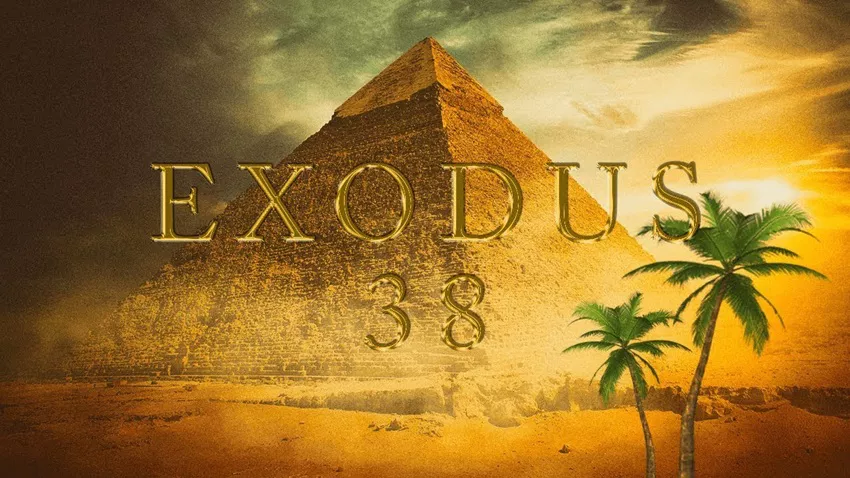Exodus Chapter 38 Summary
Exodus Chapter 38 continues the detailed account of the construction of the Tabernacle and its furnishings. It describes the making of the altar of burnt offering, the bronze laver for washing, and the construction of the court around the Tabernacle. Bezalel and his team crafted these items with precise specifications, using materials such as bronze, silver, and acacia wood. The chapter also records the total amount of materials used in the project, underscoring the generosity of the Israelites in contributing to the construction of the Tabernacle. This chapter highlights the importance of order, holiness, and worship in the presence of God.
Bible Exodus Chapter 38
Welcome to read Exodus Chapter 38. Here is the list of Exodus Chapter 38:
What Does Exodus Chapter 38 Teach Us?
Exodus Chapter 38 continues the detailed description of the construction of the Tabernacle and its furnishings. This chapter not only reveals the practical aspects of building God’s sanctuary but also conveys important spiritual lessons for believers. Here are key takeaways from Exodus 38:
1. The Importance of Sacrificial Giving
In Exodus 38, the people of Israel brought various materials for the construction of the Tabernacle, including bronze, silver, and gold. The chapter specifically highlights the freewill offerings of the Israelites, showing that God values voluntary, sacrificial giving. This teaches us that God desires our offerings to be heartfelt and willing, not out of obligation, but as a reflection of our devotion to Him.
2. God Desires Excellence in Service
The craftsmanship and materials used in building the Tabernacle were of the highest quality. Every item, from the altar to the basin, was made with great care and skill. This emphasizes that God deserves the best of our time, talents, and resources. Excellence in our work, when done for God’s glory, is a form of worship.
3. Accountability in God’s Work
Exodus 38 notes that the materials were carefully accounted for, with exact amounts listed for every item used in the Tabernacle’s construction. This teaches the importance of accountability in the work of the Lord. As Christians, we should be diligent stewards of the resources God provides, ensuring that everything we do in His name is done with integrity.
4. The Role of the Altar in Approaching God
The altar of burnt offering was a central piece in the Tabernacle, and it’s mentioned specifically in this chapter. The altar was the place of sacrifice, where offerings were made to atone for sin. This symbolizes the ultimate sacrifice of Jesus Christ, whose death on the cross allows us to approach God with confidence and be forgiven for our sins.
5. God’s Desire for Holiness in His Dwelling Place
The Tabernacle, with all its intricate details, was to be a holy place where God’s presence dwelled among His people. Exodus 38 reminds us that God desires holiness in every area of life, particularly in the spaces where we meet with Him. It calls us to make our lives, and the spaces we dedicate to Him, places of reverence and purity.
Related topics:


